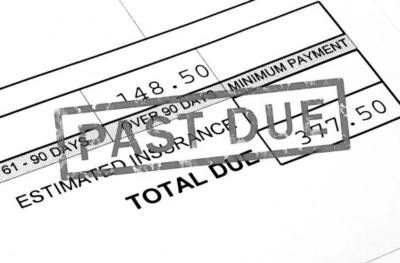There is no easy answer to 'who pays for medical bills after a car accident in Ohio' or “one size fits all” approach to paying medical bills.
Each case is fact specific to the client and should be discussed in-depth with an experienced Ohio personal injury lawyer.
Health care laws and insurance billing mandates vary from state to state, so an experienced Ohio personal injury lawyer should give each client specific advice to (a) make sure the bills are timely processed to be promptly paid and (b) maximize the client’s recovery.
As the party receiving medical treatment, the client is responsible to make sure the medical bills are properly submitted and paid by insurance, although, the client’s Ohio personal injury attorney should assist in the submission of these bills.
1. Private Health Insurance
traditionally pays for medical treatment provided by medical facilities and doctors. However, in a personal injury case, it is not always easy to get your private health insurance to pay for medical treatment which is related to an accident or negligence of another. Ohio Revised Code Section 1751.60 limits medical providers to seek compensation for covered services solely from a health insurance company, however, the decision to submit medical bills to your private health insurance will hinge on the contractual language of your health insurance policy. These policies are typically very long and contain more than 100 pages of medical definitions, terms and procedures that must be followed by the injured party, including coordination of benefits language.
2. Medicare and Medicare Advantage Plans
are health insurance programs for people who are 65 or older, certain younger people with disabilities, and people with End-Stage Renal Disease (permanent kidney failure requiring dialysis or a transplant, sometimes called ESRD). Medicare is a federally backed health insurance plan while Medicare Advantage Plans are provided by private health insurance companies. These plans include Medicare Part A (Hospital Insurance), Medicare Part B (Medical Insurance, Medicare Part C (Advantage Plans) and Medicare Part D (Prescription Drug Coverage). Generally, medical payments coverage and PIP benefits must be exhausted before medical bills will be paid by Medicare.
Medicare Advantage Plans are governed by health insurance contracts and differentiate between health insurance companies, although, Medicare Advantage Plans are provided many of the safe-guards and protections of traditional Medicare. An accident victim must review his or her Medicare Advantage Plan policy to determines the rights, responsibilities and requirements as it pertains to submitting and paying medical bills.
3. Medicaid and Medicaid Health Management Organizations
are government backed health insurance plans for low-income and needy people. Medicaid is a jointly funded, Federal-State health insurance program providing coverage for children, the aged, blind, and/or disabled and other people who are eligible to receive federally assisted income maintenance payments. Medicaid Managed Care plans act just like regular private health insurance but are qualified as Medicaid plans.
4. Medical Payments Coverage (also known as medical expense or “MedPay”)
helps pay for medical expenses associated with auto accidents. It is an option available with auto insurance policies and usually covers expenses for the policyholder, passengers, and family members driving the insured vehicle at the time of an accident. The policy can also extend to cover any injuries you sustain outside of a car. There are a number of expenses related to an automobile accident that can fall under your insurance policy's medical payments coverage. These typically relate to any costs incurred for medical care that you, or any covered member of your policy, sustain in a motor vehicle accident. They include:
- EMT and ambulance fees
- Hospital visits and stays, doctor visits
- Surgery and X-Rays
- Professional nursing services and care
- Prostheses
- Dental procedures needed as a result of an accident
- Injuries sustained as a pedestrian or riding a bicycle if a vehicle hits you
- Funerals
Medical payments coverage follows the policyholder. In other words, if you’re walking, riding in a friend’s vehicle, or using public transportation, your medical payments coverage remains active. This applies both in and out of the state you're insured in too.
who pays for medical bills after a car accident in Ohio?
5. Liability Insurance
is coverage provided by the tortfeasor or at-fault party. Liability insurers (the auto insurance of the at-fault party) typically will not pay medical bills or treatment related expenses until the conclusion of a personal injury claim. Additionally, and which makes matters more frustrating, is that liability insurers often deny, delay, refuse and/or try to pay a reduced amount of the medical bill despite physician support that the medical treatment is reasonable, necessary and related to the underlying accident.
6. No Health Insurance
for injured victims can cause significant frustration because medical providers may refuse to provide medical treatment, outstanding bills accumulate which can affect your credit and lead to collection actions and stress of mounting bills can cause financial collapse. An experienced personal injury attorney will communicate with medical providers, hold off collection actions and work with medical providers to assure your medical bills are paid in full.

